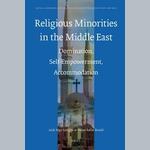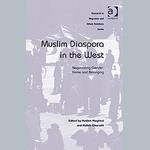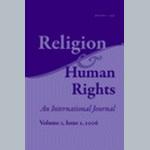The complexity of religious domination
The story of religious minorities in the Middle East instantly evokes images of Christians struggling to maintain their freedom of religion in a Muslim stronghold.
-We hear stories of oppression and brutality. Religious minorities no doubt experience discrimination, but the picture is more complex than it seems, says Anne Sofie Roald, associated researcher at Chr. Michelsen Institute.
Roald and Anh Nga Longva, the University of Bergen, have co-edited “Religious Minorities in the Middle East. Domination, Self-Empowerment, Accomodation”. This recently published book nuances the question of religious domination, past and present. Belonging to a religious minority is not only a question of being challenged and oppressed, but also of mobilizing internal and external resources to face and defeat challenges and oppression.
Activist approaches
Religious minorities in the Middle East cover a wide system of beliefs, from the Christian minority in Jordan and the Bahai in Iran, to the Muslim shia-minority in Saudi-Arabia. The Bahai in Iran and the shia in Saudi-Arabia are undoubtedly amongst the religious minorities who face grave oppression, according to Roald. However, some religious minorities are in a position to actively choose strategies of resilience and self-empowerment. The Christian Copts in Egypt rely heavily on the diaspora for financial support.
-The Egyptian Copts depend on their connections to the outside world for financial power. They are also backed by influential lobbyists abroad. Internally, they have succeeded in establishing a dialogue with the regime, says Roald.
Nevertheless, the Copts are from time to time attacked. There have been incidents of arson and beatings. Money and dialogue does not provide protection from conflicts along dividing lines that might embody more than questions of religious domination.
The difference between law and real life
In Sudan, the difference between the constitution and real-life politics is illustrated by the representation of religious minorities in powerful positions. The constitution clearly states that religious minorities can hold influential political positions, but they rarely do.
According to Roald, oppression and discrimination in Sudan is not so much a matter of religious domination, as a matter of ethnic dividing lines and the former conflict between the north and south.
In stark contrast to Sudan, Jordan’s Christian minority are well represented in influential positions in society at large. Jordan has a population of nearly 6.5 million, of which 4-5% are Christian. Still, the Christian minority holds about 9% of these positions.
- The desolate situation of minorities like the Bahais in Iran opposed to the active self-empowerment strategies of the Christian minority in Jordan and the Copts in Egypt, vividly illustrates the complexity of religious domination, says Roald.
Publications

Religious minorities in the Middle East. Domination, self-empowerment, accommodation

European Islamic gender discourse

Multiculturalism and pluralism in secular society: Individual or collective rights?

Multiculturalism and religious legislation in Sweden
